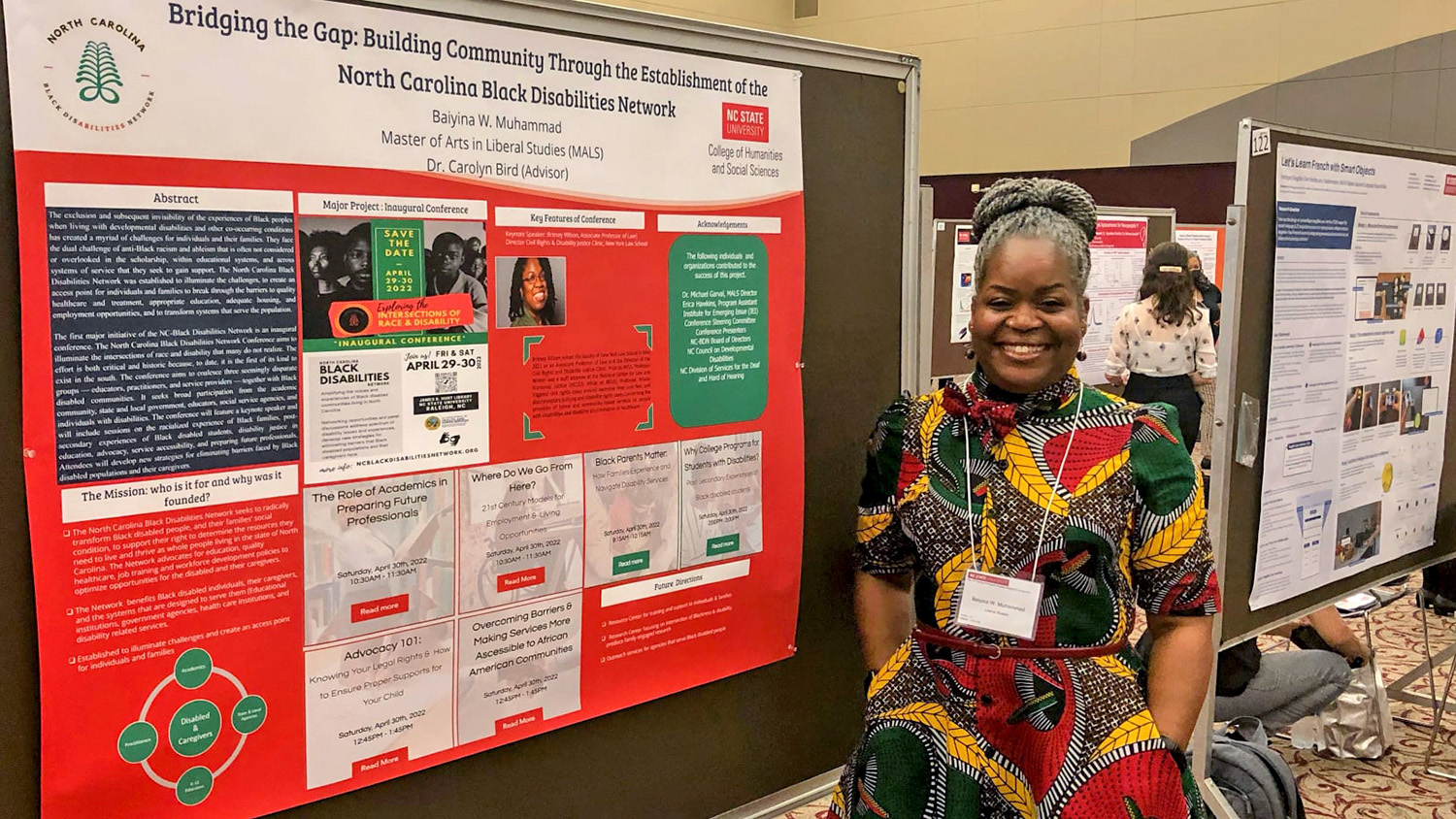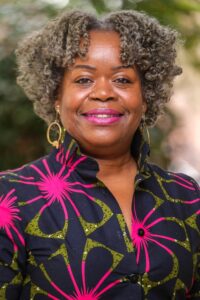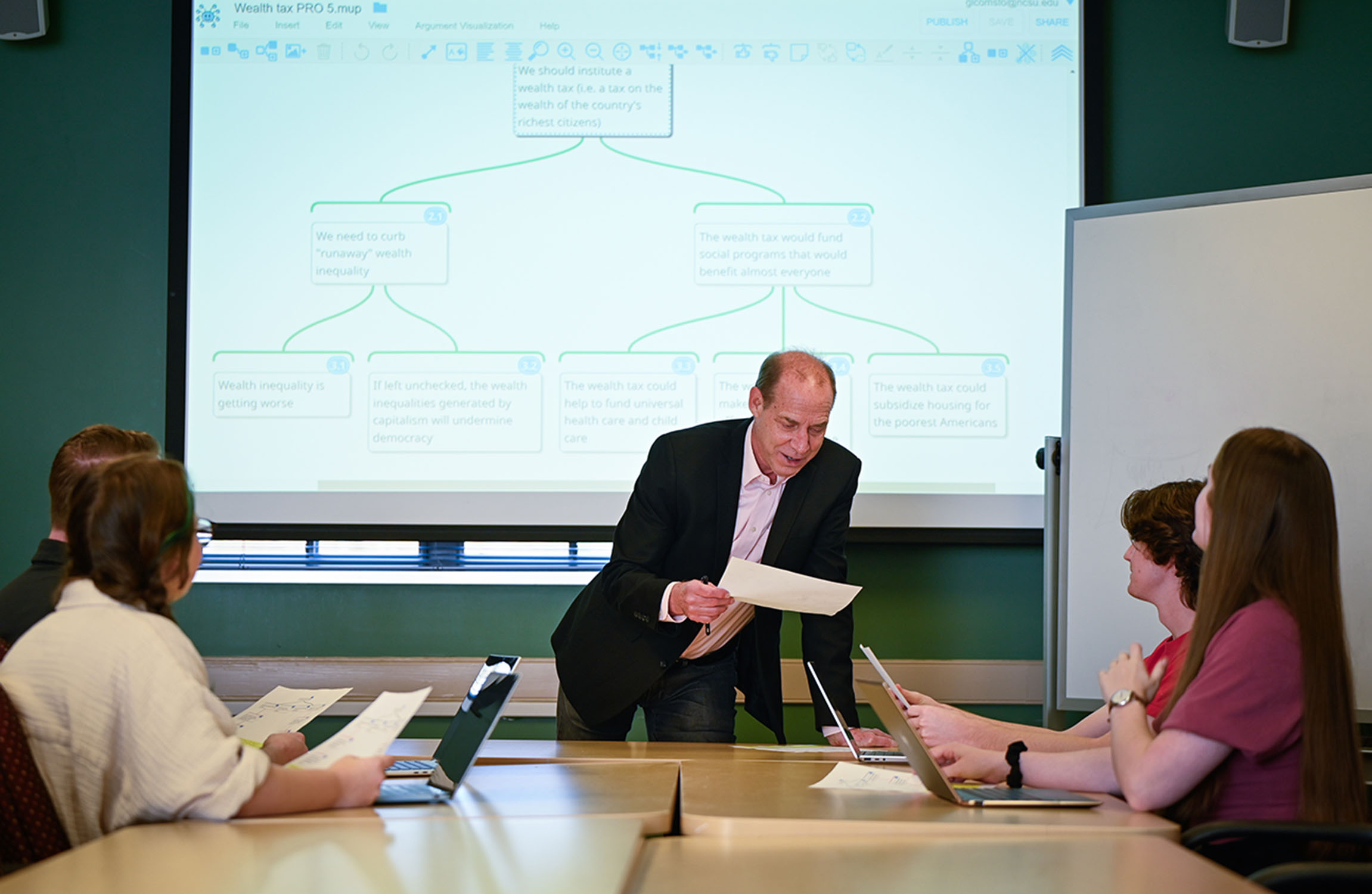Fostering Equity Between Race, Disability

Graduate student Baiyina Muhammad is involved in a delicate balancing act these days. With a full course load and work as a history professor at a nearby university, she’s juggling multiple responsibilities. As founder of the North Carolina Black Disabilities Network, she also recently organized its inaugural conference on race and disabilities, making her life, at times, more than a little hectic.
But the challenge has been worth it. Muhammad, who will graduate in May with a Master of Arts in liberal studies, says she gained the training and knowledge, “to bring together my passion and interests in the interconnectedness of race and disability.”
And through the network, she aims to amplify the voices and experiences of Black people in North Carolina with disabilities.

It is a cause close to home for Muhammad, a Black Muslim mother of four sons, two of whom are disabled. In 2021, she founded the network, considered among the first of its kind in the Southeast, to transform systems that serve her target population.
We caught up with Muhammad to learn more about her NC State experience, future plans, and inspiration for the network and conference.
Why did you enroll in the MALS program?
I earned a certificate in autism in my post-graduate work and participated in a yearlong fellowship in leadership education in neurodevelopmental disorders.
However, I felt a need to continue academic training that used interdisciplinary methods and ideas to foster robust and meaningful solutions to address issues I was motivated to solve. The MALS program provides the option to self-design a concentration anchored in developing an integrative, multi-pronged approach to dealing with real-world issues.
I have taken courses in fields related to disabilities and made a concerted effort to focus all research assignments on themes that intersect with racialized experiences and disability.
What new skills did you learn, and how will your degree help you in the future?
Further academic knowledge and training, coupled with two decades of experience as an activist mother, was the preparation I needed to create an organization and spearhead a significant conference. Both are realities.
In addition, the program helped me further develop my leadership skills and expand my professional network.
Why did you establish the North Carolina Black Disabilities Network and organize its inaugural conference?
My lived experience of being a mother of two Black disabled sons informed both. Moreover, I gained inspiration from years of interaction with, and observations of, Blacks encountering systems that are supposed to serve them but do not. These barriers include access to quality healthcare and treatment, appropriate education, adequate housing and employment opportunities.
I also draw inspiration from early 19th and 20th-century Black women who used institution building to address the community’s needs. The network is critical because it combines the issues of better services, access and implementation to allow us to gain new perspectives and create Black futures that leave no one behind, especially those who are Black and disabled.
What was the conference’s mission?
Illuminate the intersection of race and disability.
The conference sought broad participation from the academic community, state and local governments, educators, social service agencies and individuals with disabilities. Through a keynote address, various panel discussions and networking opportunities, attendees discussed the spectrum of disability issues and experiences — and developed new strategies for eliminating barriers that Black disabled populations and their caregivers face.
What do you value most about your time at NC State?
The coursework. The benefit of taking classes in cross-disciplinary fields is that it expands my knowledge of the interconnected ways that race, disability and public policy are addressed across multiple areas.
In particular, the course on program development and evaluation allowed me to take a specific issue that I plan to address in my future work as a disability justice advocate and policy advisor and develop a grant project. The project proposal considered a critical issue of post-secondary educational attainment as a significant factor facing Black disabled teens and their caregivers. Developing a program to benefit both and writing the grant proposal provided the practical experience I had hoped to gain when I selected the program.
What’s next for you?
I am honored to lead the work of the network and thrilled about its future. Plans include: meeting with individuals and families throughout the state to help guide our work in the immediate future; opening a resource center for parent support, teen adult services, leadership and advocacy training; and establishing an office of community outreach to provide training for school districts and potential employment partners.
Lastly, the network will develop a research department focused on producing scholarship about the intersection of Blackness and disability. The research will unpack the complexities around resource allocations in affordable housing, home and community-based resources, such as the innovation waiver, vocational rehabilitation services and disability job-placement services.


